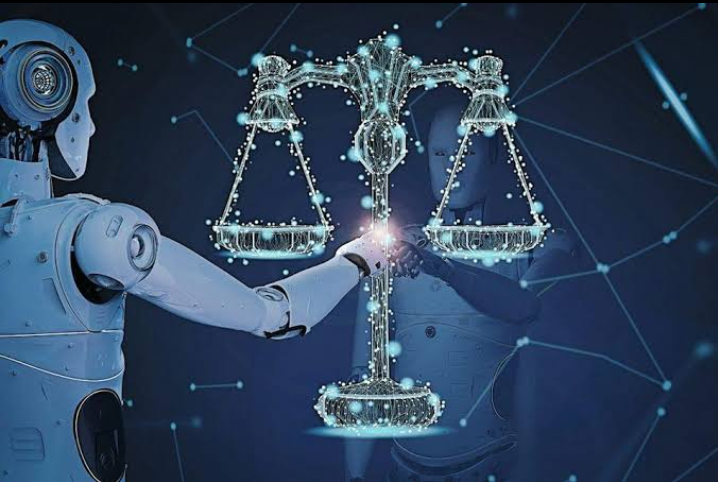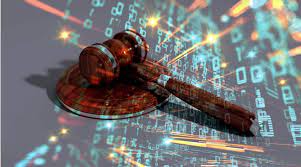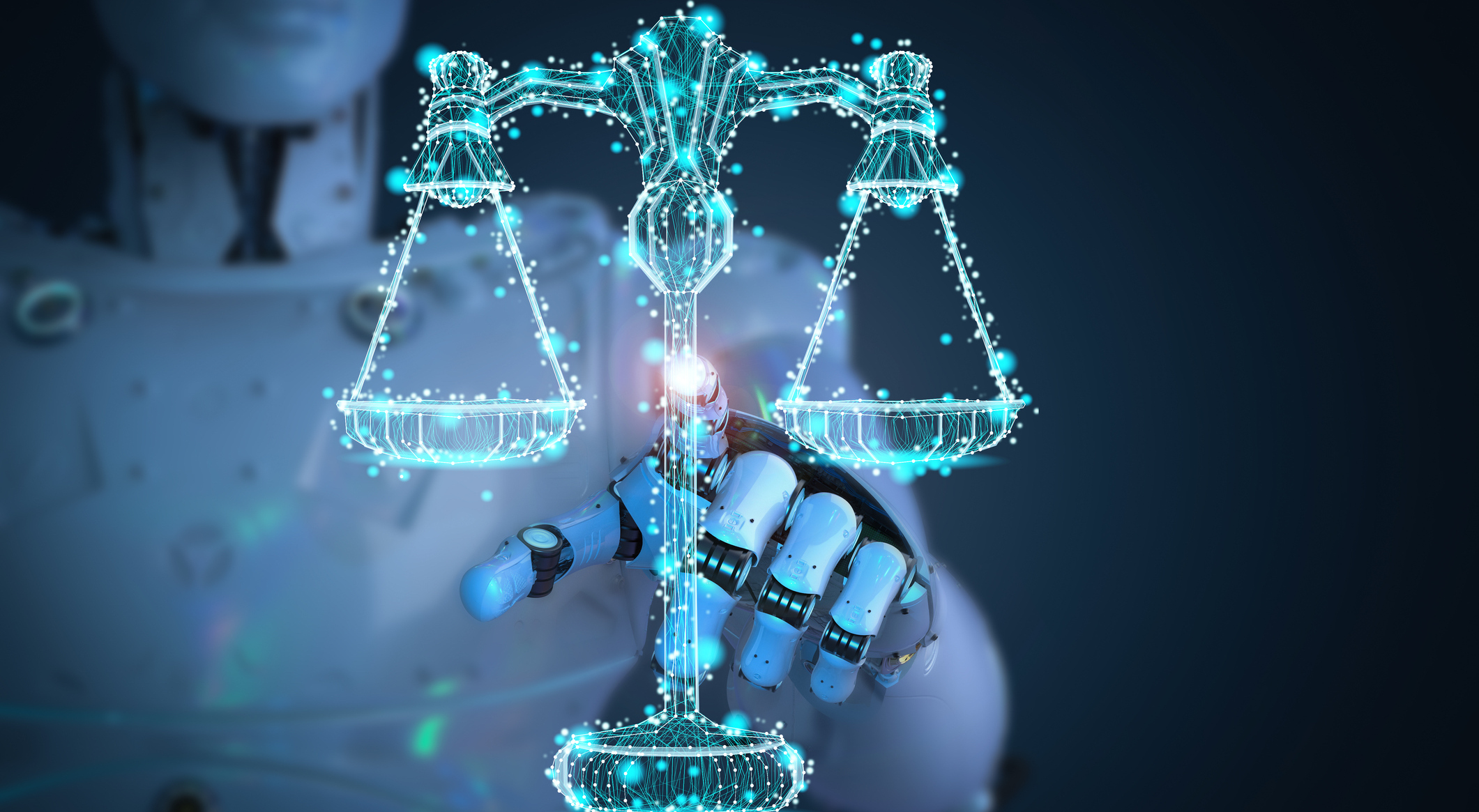Hello!
Have you heard the buzz? Data is expanding incredibly quickly in the modern world. The analysis of that massive data store requires an enormous amount of time, even though the information contained there is comparably extensive and useful—especially for the practice of law.
 What benefits might these implementations of AI provide for your law firm? We’ll go over the six main advantages of using AI solutions in law firms in this article.
What benefits might these implementations of AI provide for your law firm? We’ll go over the six main advantages of using AI solutions in law firms in this article.
These advantages all relate to one another, as you’ll discover. In order to do their work more quickly and save time, lawyers must be more creative and less stressed.
When these two factors are together, the cycle is restarted.
1. AI Enhances The Logical and Organizational Structure
Lawyers can more rapidly find weaknesses or gaps in their documents, including in their legal assessments and inheritance planning, with the use of automatic document comparison and organizing. For instance, programs that analyze contracts can find terms or meanings that are missing from well-known contract types after learning from the frequent analysis.
 In a similar spirit, document analysis can reveal a logical thread that hasn’t quite been cemented in a legal memorandum, allowing lawyers to go back and improve their weak points.
In a similar spirit, document analysis can reveal a logical thread that hasn’t quite been cemented in a legal memorandum, allowing lawyers to go back and improve their weak points.
Both documents benefit from intelligent software that maintains the internal organization and enables attorneys to easily navigate between various levels and perspectives, improving the overall structure and logical flow of the document.
2. AI Improves The Ability to Analyze Ideas Creatively
 AI frees up the time and mental energy of attorneys for higher-level work by automating document quality control, review, and research. This fosters innovation, enabling lawyers to offer distinctive value and entirely concentrate on the tasks that computers are unable to accomplish.
AI frees up the time and mental energy of attorneys for higher-level work by automating document quality control, review, and research. This fosters innovation, enabling lawyers to offer distinctive value and entirely concentrate on the tasks that computers are unable to accomplish.
Increased trust in outcomes also allows lawyers the leeway they need to take chances and consider different strategies.
California Law Firm experiments with different fact patterns or legal analyses using legal research software to determine the most effective course of action.
Comparisons between cases in other states or between state and federal courts don’t need to be done by laboriously (and wearisome) scanning over the course of days.
3. AI Saves Time
Saving time is the main and most obvious advantage of AI applications. Computer systems can evaluate information more extensively and in less time than people can.
 Naturally, the time reductions can result in financial savings as discovering solutions and recognizing errors takes less time from the attorney or staff. The expense of new technology can be swiftly offset by those savings, which can then be passed on to customers.
Naturally, the time reductions can result in financial savings as discovering solutions and recognizing errors takes less time from the attorney or staff. The expense of new technology can be swiftly offset by those savings, which can then be passed on to customers.
California law firms typically review numerous contracts, analyze them, and provide comments and redlines to clients.
Consider a company with thousands of contracts that have been examined and for which you must maintain a record of the terms of payment, renewal, expiration, and other information. Such jobs can be effectively completed by AI in a law company.
4. Accurate Result Prediction
In order for their clients to decide whether they want to pursue the lawsuit or choose an out-of-court settlement, lawyers typically have to forecast the outcomes.
 To predict the results of ongoing cases, machine learning models are being developed by AI developers. A tax law-focused AI-based legal prediction engine is being developed by several businesses. They assert that their AI tool can predict the results of ongoing cases with a 90% accuracy rate.
To predict the results of ongoing cases, machine learning models are being developed by AI developers. A tax law-focused AI-based legal prediction engine is being developed by several businesses. They assert that their AI tool can predict the results of ongoing cases with a 90% accuracy rate.
The way law firms manage cases will alter as a result of these AI capabilities.
These tools will be used by law firms to create litigation strategies, expedite settlement discussions, and reduce the number of cases that go to trial.
5. Remote Workspace
Nearly all businesses have adopted remote working practices since the COVID-19 pandemic, particularly during the lockdown. The same applies to law firms. The pandemic has compelled the legal sector to alter court procedures and run entirely digitally, and AI has assisted lawyers in carrying out their duties remotely.
 The experts in a firm can now view papers from their homes and schedule a video meeting to discuss and settle a case.
The experts in a firm can now view papers from their homes and schedule a video meeting to discuss and settle a case.
Video conferencing tools, e-signature, law practice management software, time and billing software, and communication software were the most popular remote-working tools that businesses purchased as a result of the epidemic. The following methods and tools have been employed by law firms to do their tasks.
And now they can receive for their services in cryptocurrency.
If they want to complete tasks with payment in cryptocurrency, services like Quasa Connect are a great place. A simple interface allows you to quickly find tasks in just a couple of clicks. You will receive payment in the liquid cryptocurrency of the Quasacoin project (QUA).
 Quasacoin (QUA) is a cryptocurrency that was specifically created for settlements between freelancers and clients, so you can always exchange it for any other.
Quasacoin (QUA) is a cryptocurrency that was specifically created for settlements between freelancers and clients, so you can always exchange it for any other.
The application is available for all versions of Android.
Before work, install a popular and reliable crypto wallet on your mobile. For example, Metamask or Trust Wallet. Remember to write down the seed phrase in a safe place.
- perform any work;
- order any work;
- agree on the cost of work;
- use the chat in the application;
- receive payment in QUA cryptocurrency;
- withdraw your QUA cryptocurrency to a crypto wallet.
The Quasacoin (QUA) token is listed on many exchanges. Listing and ratings from leading rating agencies CoinMarketCap and CoinGecko.
.jpg) In the Quasa Connect app, find tasks from clients from anywhere in the world, now it's possible!
In the Quasa Connect app, find tasks from clients from anywhere in the world, now it's possible!
In the Quasa Connect app, click "Connect Wallet" to connect to your crypto wallet and answer published tasks. Complete your profile and add a portfolio so clients can select you and see your qualifications. After the customer has chosen you and entrusted his task, you will begin the implementation, and when completed, click the “Finish” button.
The reserved money will go to your balance in the application when the customer accepts your work.
Click "Withdraw" and receive Quasacoin (QUA) cryptocurrency to your personal crypto wallet.
.jpg) On decentralized exchanges like Uniswap, SushiSwap or Balancer, exchange QUA for bitcoin, USDT or any other cryptocurrency. You don’t even need to register on these exchanges, everything is anonymous. You also connect your Metamask or Trust wallet and change QUA. Very safe and secure.
On decentralized exchanges like Uniswap, SushiSwap or Balancer, exchange QUA for bitcoin, USDT or any other cryptocurrency. You don’t even need to register on these exchanges, everything is anonymous. You also connect your Metamask or Trust wallet and change QUA. Very safe and secure.
In many countries, payments in dollars are difficult, but there are no problems with cryptocurrencies. And if you live in one of these countries, then, receiving payment in cryptocurrency for your services, you can easily exchange it on p2p exchanges for the currency of your country.
 The new crypto-settlement tools in QUASA democratize access to services traditionally tied to fiat money and banks, and open up opportunities for hundreds of millions of people.
The new crypto-settlement tools in QUASA democratize access to services traditionally tied to fiat money and banks, and open up opportunities for hundreds of millions of people.
You are not tied to the currency of any country, and you can easily receive assignments from clients from anywhere in the world, even if you work in a country where the circulation of dollars is limited.
There is no need for conversion and complexities with banking operations. No need to know the laws of different countries.
Alternatively, if you believe that crypto will eventually replace cash, then you can hold on to your assets and profit in the long run.
6. Automatic Reminders
Legal automation involves breaking down tasks or procedures that are typically handled by lawyers and integrating some of those components into technology. Complex, high-volume work, and routine, repetitive tasks are the most commonly automated legal tasks.
 These tasks are most frequently automated in high-volume data collecting, review, repeatable processes, and document preparation. If you want to address standard form letters in a different way, think about employing mail merging software. To remember court dates, use an automatic tickler or reminder system.
These tasks are most frequently automated in high-volume data collecting, review, repeatable processes, and document preparation. If you want to address standard form letters in a different way, think about employing mail merging software. To remember court dates, use an automatic tickler or reminder system.
However, the uses of legal automation have become more sophisticated, ranging from filtering massive document review sets during litigation to extracting important terms from contracts in due diligence processes.
Another area of law that could benefit from AI is the recent trend among lawyers to automate the drafting of legal contracts and crucial steps in the negotiation process.
The Bottom Line
By using AI, lawyers will have more time and patience to advise their clients and do a better job. It may be said that implementing AI in law companies can give the firm positive impetus, assisting lawyers in working more efficiently.
Thank you!
Join us on social networks!
See you!


.jpg)




